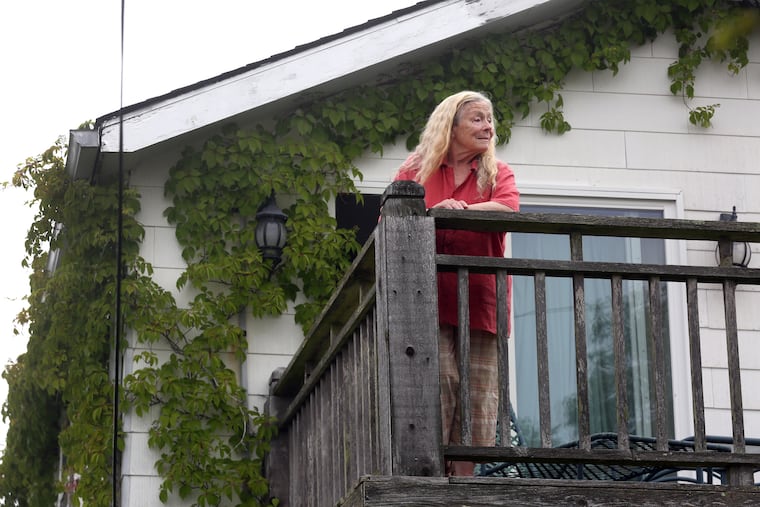After daylong trial, judge to tell an Avalon woman if she must cut the vines on her beach-block house
Friday's trial came after more than a year of battling between an Avalon woman and the town officials who cited her over the vines on her house.

AVALON, N.J. — An Avalon homeowner at war with the beach town for more than a year over the vines growing on her house has placed the future of her Virginia creepers in a judge’s hands.
After a daylong trial Friday, Municipal Court Judge Andrew Cafiero said he needed more time to decide if Elaine Scattergood must cut the vines on her beach-block home. The judge said he would rule on March 9.
That followed a seven-hour hearing featuring allegations of political retribution alongside expert testimony about invasive, leafy plants. At one point, landscape architect Scott Taylor, called by the borough attorney to testify about the potential hazards of allowing vines to grow unchecked, was asked to define a weed.
“Every single plant has the potential to be a weed,” he said. “A weed is any plant out of place. A beautiful rose in a cornfield is a weed to that corn farmer.”
To Scattergood, the Virginia creepers she has been cultivating for decades are right where they belong, climbing the walls of her home on 30th Street. When a code enforcement official cited her for violating a town ordinance on overgrowth, Scattergood refused to cut them, saying the ivy produces berries that nourish birds during the winter.
» READ MORE: Avalon officials told her to cut the vines growing on her house. Now, the case is going to trial.
Scattergood, a full-time resident who lives in a house formerly owned by her parents, said that as Avalon morphed from a quaint beach town to a posh resort community, the development of multimillion-dollar homes has edged out food sources for birds and other wildlife. She believes safety concerns are just a pretext and that town officials only care about making sure Avalon’s properties look pristine.
Scattergood has spent tens of thousands fighting the case, she said Friday.
“And I’m a taxpayer,” she said. “I’m paying to prosecute myself!”
Her attorney, Joseph Grassi, sought during the trial to undermine the borough’s case with a plethora of arguments: that Scattergood was unfairly singled out while vines on other Avalon homes are allowed to remain; that borough officials never followed proper protocol when notifying her of their concerns regarding her property; that the citations were too vague; and that she was the victim of retaliation stemming from her history as a well-known environmental activist.
Municipal prosecutor Frank Guaracini III said Scattergood’s vines violate an ordinance requiring that properties be maintained in a “clean, safe, and sanitary condition.” The plants are starting to dislodge the house’s siding and twist around electrical wires, he said.
“It’s spreading quickly, and there’s a concern that the damage will only be exacerbated as time goes on,” he said.
Town officials have said multiple residents complained about Scattergood’s property and that hers was one of several cited for overgrown weeds and grass. The town code calls for vines to be trimmed to less than nine inches in length.
Friday’s trial drew about a dozen residents and friends of Scattergood, some of whom said they were outraged by what they saw as government overreach and others who said they supported her commitment to environmental causes. Scattergood’s history of activism has included protests of construction projects and the creation of an organization called Save Avalon’s Dunes.
Stan Sperlak, a horticulturist and landscape designer hired by Scattergood to rebut the borough’s expert witness, said that when he examined her yard, he was delighted to find it a thriving haven for butterflies and plants that grow elsewhere in the borough.
“Here,” he said, “was an oasis of what Avalon used to be like.”